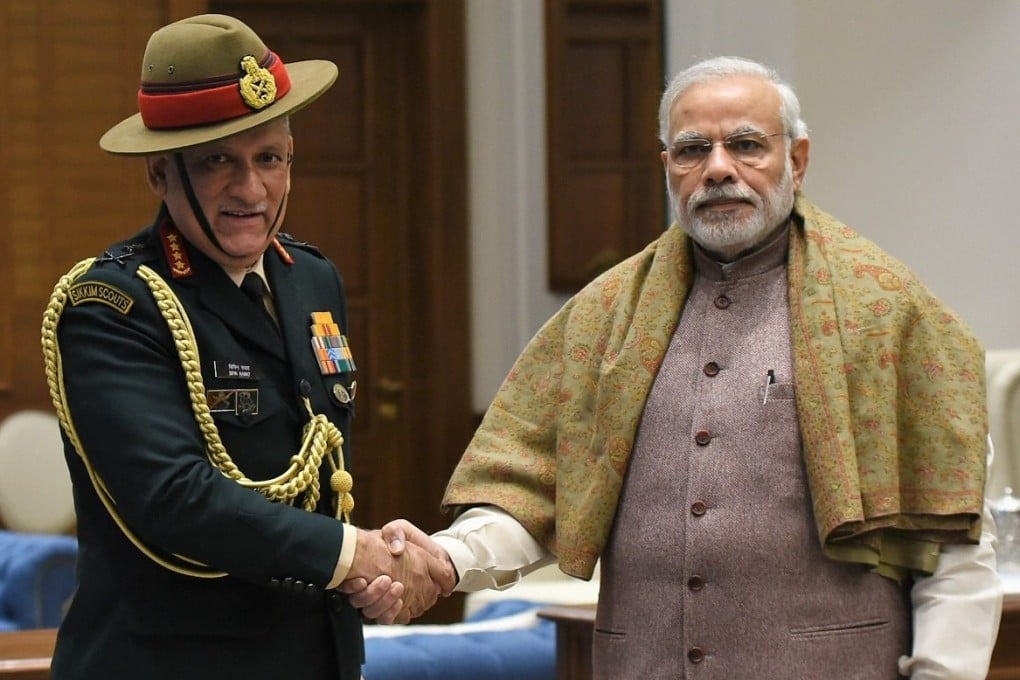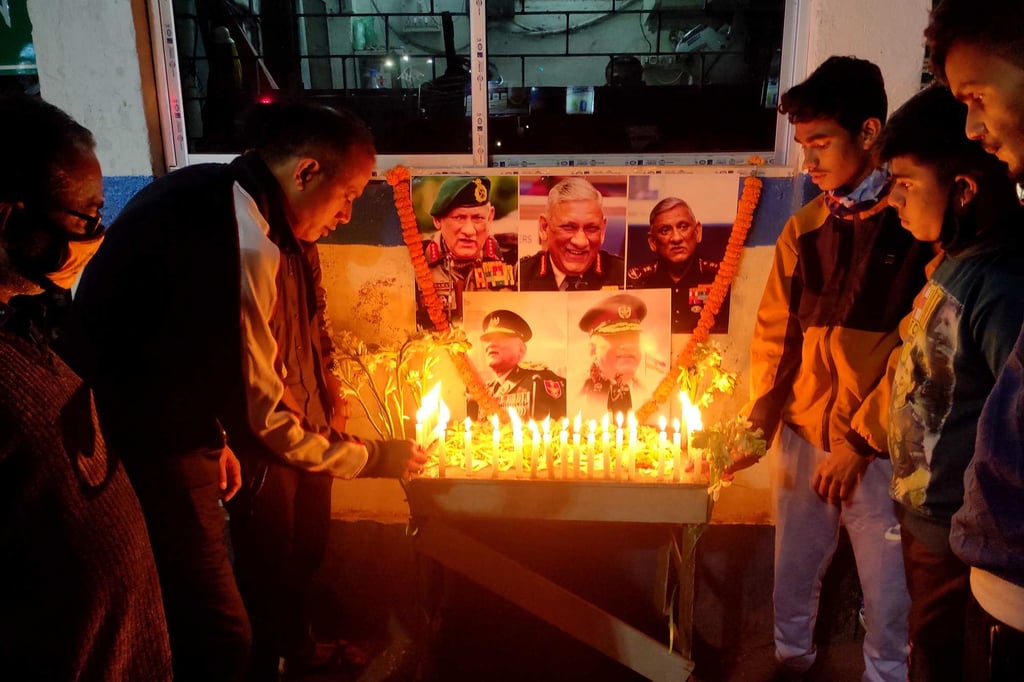As India mourns the death of top general Bipin Rawat, what does his loss mean for its military?
- The country’s most senior serving soldier was hand-picked by Modi to become his army chief before becoming the nation’s first chief of defence staff
- His fatal helicopter crash ‘couldn’t have come at a worse time’, one analyst says, amid heightened border tensions with China

Rawat’s death “couldn’t have come at a worse time”, tweeted strategic analyst and author Brahma Chellaney, as “China’s 20-month-long border aggression has resulted in a warlike situation along the Himalayan front”.
Defence Minister Rajnath Singh was the first to announce the bad news over Twitter: “Deeply anguished by the sudden demise of Chief of Defence Staff Gen Bipin Rawat, his wife and 11 other Armed Forces personnel in an extremely unfortunate helicopter accident today in Tamil Nadu. His untimely death is an irreparable loss to our Armed Forces and the country.”

Rawat was hand-picked by Modi to become his army chief in 2016, superseding another officer who many felt was better qualified. Three years later, he was chosen as the first tri-service Chief of Defence Staff, bringing for the first time the army, navy and air force under a single umbrella.
The general also shared a close working relationship with Modi’s powerful National Security Adviser (NSA) Ajit Doval. The two cooperated successfully on operations such as air force and special forces strikes into Pakistan.
